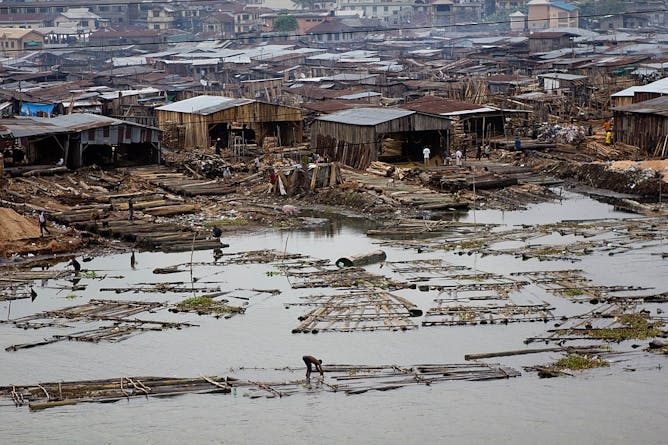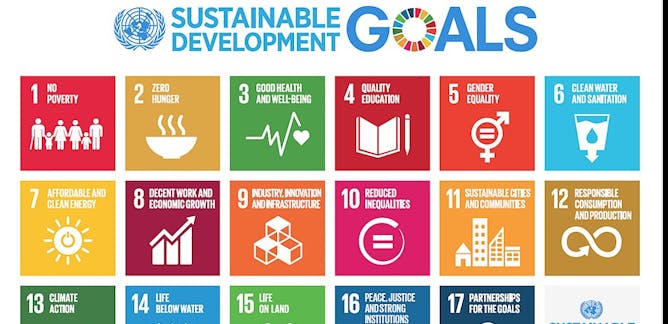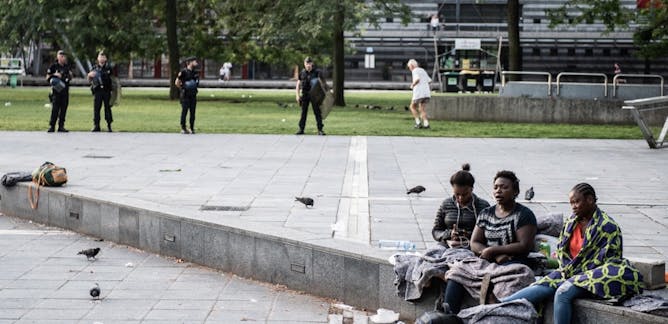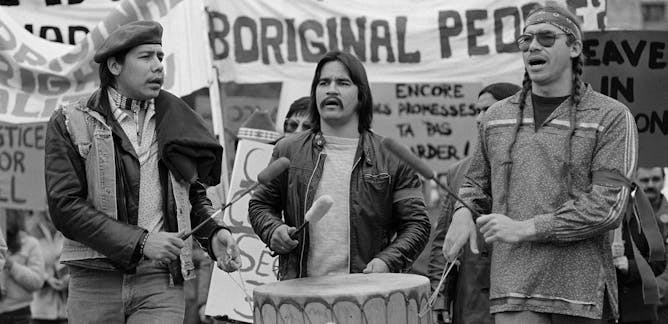|
More and more people are pouring into Nigeria’s cities from the country’s rural areas – close to 100 million people now live in more than 780 cities across Nigeria. Federal and state governments are struggling to keep up with soaring urbanisation, or to provide the services that people need. John Rennie Short suggests that Nigeria could learn some valuable urbanisation lessons from other cities, especially those in Latin America.
In Ethiopia, several billion US dollars have been poured into massive sugar projects intended to create hundreds of thousands of jobs. But 10 years on, these now stand as reminders of the country’s disappointing state-led sugar industrialisation. Benedikt Kamski sets out why the government’s plan to privatise the industry will run into the same unresolved challenges.
|

The infamous Makoko slum in Lagos, Nigeria.
Stefan Magdalinski/Wikimedia Commons
John Rennie Short, University of Maryland, Baltimore County
In our urban world, turning the makeshift and the informal into the livable and sustainable is our greatest challenge.
|

Sunset over Omo River valley in southern Ethiopia.
Flickr/Rod Waddington
Benedikt Kamski, Freiburg University
Prospective investors have the task of turning round an industry beset by technical challenges and incomplete planning
|
Education
|

Mark Maslin, UCL
As a human evolution researcher, I was very excited to work with the creator of the Assassin's Creed games.
| |

Denise Rosemary Nicholson, University of the Witwatersrand
South Africa's new Copyright Amendment Bill could help the country take an important step in tackling its own “book famine”.
|
|
|
En français
|

Mame Thierno Cissé, Université Cheikh Anta Diop de Dakar; Gabrielle Le Tallec, Université Paris 13 – USPC
Au Sénégal avec 22 langues locales codifiées, la diffusion des textes internationaux pose la question de savoir dans quelle(s) langue(s) les populations doivent être informées.
| |

Camille Malafosse, UNSW
Les villes, premier point d’accueil des migrants, demandeurs d’asile et réfugiés sont-elles habilitées à agir contre les incohérences de la politique migratoire européenne ?
|
|
|
From our international editions
|

Steven J. Hoffman, York University, Canada; Mathieu Poirier, York University, Canada
Rapidly growing metropolises like Beijing, Jakarta and Ho Chi Minh City are struggling to protect residents against tobacco. Life-saving policies in rich countries may be partially to blame.
| |

Tomer Ventura, University of the Sunshine Coast
Entire populations of prawn 'super-females' are now being commercially distributed. The science behind this continues to advance and could have a far-reaching impact on both humans and animals.
|

Sheryl Lightfoot, University of British Columbia
It's the 12th anniversary of the UN Declaration on the Rights of Indigenous Peoples. Canada has yet to implement this declaration even though the TRC says the road to reconciliation needs to start here.
| |

Elizabeth C. Tippett, University of Oregon
The New York Times reporters who broke the Weinstein story show how lawyers – whether ones who represented him or his victims – enabled the movie mogul's wrongdoing.
|
|
|